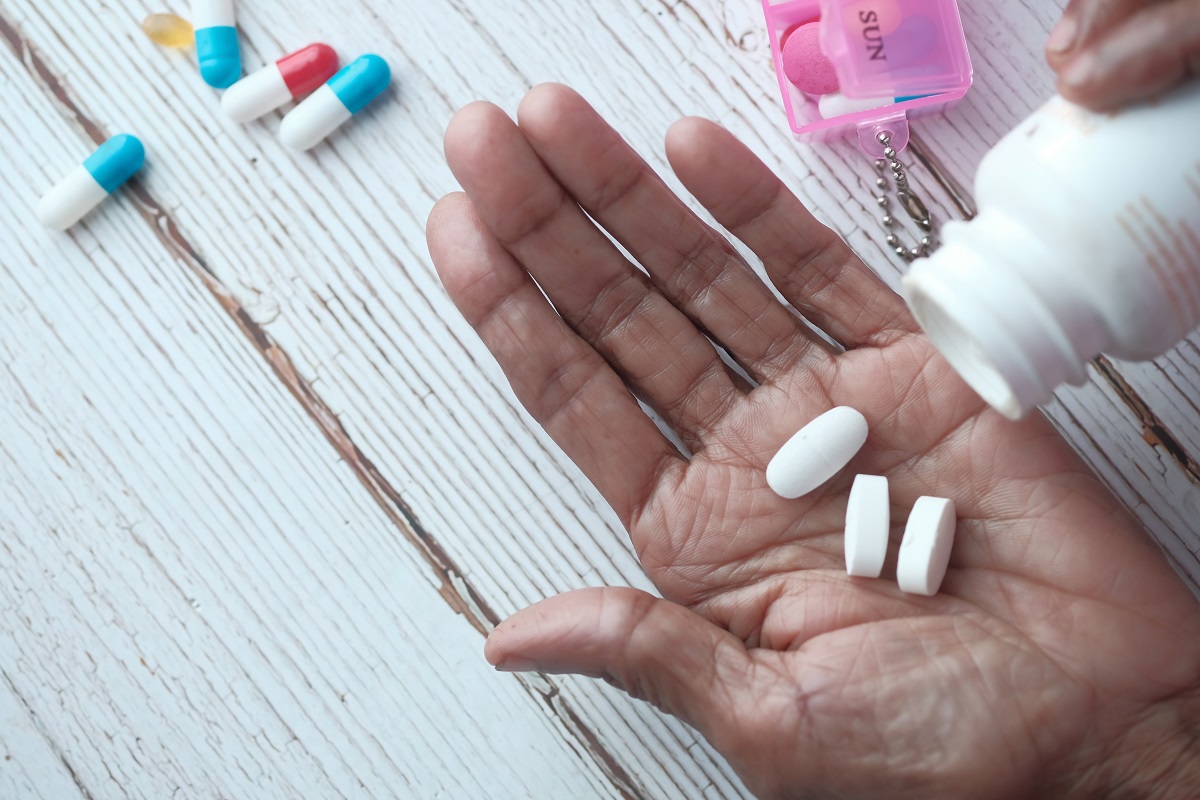A group of symptoms that usually occur after heavy alcohol drinking is called a hangover. However, frequent hangovers could also be linked with poor performance and problems at home, school, and work. Generally, hangovers are directly linked to the amount of alcohol you take. In any case, it is not possible to determine the safe amount of alcohol you can take to avoid a hangover.
In most cases, hangovers go away on their own but sometimes can last up to 24 hours. That’s why it is recommended to drink alcohol responsibly.
Symptoms
Commonly, symptoms appear when the alcohol in the blood is at or near 0 and begin in the morning after a night of heavy drinking. The symptoms also appear differently among people because it depends on the type and amount of alcohol you drink. Check below some hangover symptoms:
- Fatigue (extreme tiredness)
- Weakness
- Thirst
- Dry mouth
- Muscle aches
- Nausea
- Vomiting
- Abdominal pain
- Headaches
- Poor sleep
- Reduced tolerance to light and sound
- Shakiness
- Sweating
- Dizziness
- Difficulty thinking or concentrating
- Mood changes (including anxiety, depression, irritability, and others)
- Fast heartbeat
It is advised to see a doctor if you drink high amounts of alcohol frequently and are concerned about potential health problems (including alcohol withdrawal).
Additionally, some people may experience severe adverse reactions which can be a sign of alcohol poisoning (a life-threatening emergency). Furthermore, sometimes alcohol poisoning can lead to breathing problems, irregular heart rate and body temperature, coma, and even death. Seek emergency care immediately if you experience any of the following symptoms. For example:
- Slow heart rate
- Difficulty remaining conscious
- Passing out without the possibility of being awakened
- Sweaty or wet skin
- Reduced body temperature
- Decreased oxygen levels that usually cause blue or gray skin color
- Breathing problems (such as slow breathing)
- Seizures
- Vomiting
- Confusion
It is advised to seek medical care immediately if you see a person who cannot be awakened even if classic hangover symptoms are not present.
Causes
The primary cause of hangovers is heavy alcohol drinking. While some people experience a hangover even after a single alcoholic beverage, others may not have a hangover despite heavy alcohol drinking. Check below some factors that usually contribute to a hangover:
- Increased urine production – Usually, alcohol increases urine production and potentially can lead to dehydration. The dehydration symptoms include increased thirst, tiredness, headaches, dizziness, and lightheadedness.
- Inflammatory response of the immune system – This also can occur due to alcohol which usually causes physical symptoms including loss of interest in activities that you previously enjoyed, memory problems, poor appetite, and others.
- Stomach irritation – Alcohol causes irritation of the stomach lining which can lead to vomiting, nausea, or abdominal pain.
- Decreased blood sugar levels – This also happens due to alcoholic drinks and can cause fatigue, weakness, and shakiness. In severe cases, people may experience mood swings and even seizures.
- Poor sleep – Alcoholic beverages prevent getting the sleep that helps you to feel rested. Therefore, you may awaken in the middle of the night or too early in the morning. Poor sleep usually leads to tiredness and weakness during the day.
Congeners
There are some alcoholic drinks that contain congeners, which gives multiple alcoholic drinks their taste and smell. Increased amounts of congeners are often found in dark liquors (including brandy and bourbon) compared to clear liquors (such as gin and vodka). These congeners could play a role in hangovers. For instance, people who drink large amounts of any colored alcohol are more prone to experience a hangover the next morning.
Risk Factors
Anyone who drinks large amounts of alcohol can experience a hangover. In addition, the severity and frequency of hangovers differ among people because of a specific gene responsible for the breakdown of alcohol in the body. Moreover, some people may feel bad even after a small amount of alcohol. Check below some factors that may be more likely to cause or worsen a hangover:
- Drinking on an empty stomach makes you more likely to experience a hangover. An empty stomach makes the alcohol enter the body faster and in increased amounts.
- Smoking along with drinking alcohol also makes you more prone to get a hangover.
- Poor sleeping after drinking is usually linked with hangovers, according to some research.
- Family history of alcohol use disorder – Having a family member with this disorder may lead to certain problems with the body’s ability to break down the alcohol.
- Dark-colored drinks – People who drink dark-colored drinks are at increased risk of developing a hangover due to the high levels of congeners that these beverages contain.
There are some people who experience a headache after drinking wine (also known as wine headache), especially red wine. Experts suggest that this is another hangover type that not every time causes headaches. Although the exact cause of wine headaches is not known, healthcare providers continue to study this hangover type.
Complications
The following problems usually occur when you experience a hangover. For example:
- Problems with attention, focus, and clear thinking
- Memory problems
- Issues with tasks that need steady hands and body coordination
How to Prevent Hangovers?
There are some companies that use misleading advertising to claim that certain of their products can prevent hangovers but the only sure way to prevent a hangover is to not drink alcohol. However, if you want to drink, do it in moderation. For instance one drink for women per day and two drinks per day for men.
The chance you will get a hangover the next day directly is linked to the amount of alcohol you drink. Check below some tips that may help to prevent or avoid a hangover:
- You should eat before and while drinking – The body absorbs alcohol faster when the stomach is empty. That’s why you should eat something before an alcoholic beverage.
- Choose carefully – It means that you should choose beverages that are lower in congeners (a factor that often causes hangovers).
- Drink water between alcoholic drinks – A glass of water after each alcoholic drink helps to stay hydrated.
- Drink in moderation – You should decide ahead of time how much you will drink and stick to it.
- Do not rush – You should not drink more than one alcoholic beverage per hour. Otherwise, you may overcome the limit and not understand when you become drunk.
Sometimes, people administer painkillers to prevent hangover symptoms. However, it is advised to consult with a doctor about the dose and medicine type before taking it because alcoholic drinks may interact with pain relievers and cause unpleasant symptoms.
Moreover, Aspirin and Ibuprofen may cause the stomach to produce more acid, which can lead to irritation of the stomach lining. Another painkiller that should not be used along with alcohol is Acetaminophen. It can cause serious liver damage along with heavy alcohol drinking.
Diagnosis
Commonly, people do not go to a doctor to get a diagnosis and treatment for hangovers. They understand a hangover happens based on the symptoms in the morning after drinking alcohol. The most common hangover symptoms include difficulty thinking clearly, decreased light and sound tolerance, tiredness, dry mouth, headaches, and nausea.
However, it is advised to see a doctor if you have frequent hangovers that negatively affect your quality of life (including relationships, school or work performance, and others).
Treatment
The symptoms usually go away within 24 hours. However, the following tips can help you to feel better. Examples include:
- Pain relievers – You can administer a standard dose of pain relievers which you can buy without a prescription. In any case, it is advised to consult with a doctor before taking any over-the-counter (OTC) medicines because Aspirin and Ibuprofen can irritate the stomach.
- Go back to bed – It is advised to go back to sleep because when you awaken the hangover may disappear.
- Eat – You should eat bland foods (including crackers and toast) that help boost blood sugar. Some people notice significant improvements after eating bouillon soup.
- Drink water because it helps to prevent dehydration. Never drink more alcohol the next day because it may worsen the hangover.
Alternative Medications
There are different options that are marketed to help with hangovers. In any case, there are no studies that confirm any natural remedies relieve hangovers effectively. That’s why you should consult with your healthcare professional before taking natural supplements or medicines because not every time natural means safe.
Frequently Asked Questions
When do hangovers happen?
People usually experience a hangover after heavy alcohol drinking. The symptoms often appear the next morning and last approximately 24 hours. This problem usually does not need doctors and specific treatments.
What foods should be avoided by people who experience a hangover?
It is not recommended to eat greasy, spicy, and sugary foods because the hangover may worsen. Instead of previous foods, you can eat bouillon soap, toast, or crackers. Discuss with your doctor for more details.
What are the possible hangover complications?
These include:
- Dizziness
- Poor sleep
- Fast heartbeat
- Fatigue (extreme tiredness)
- Vomiting
- Nausea
- Weakness
- Myalgia
- Difficulty concentrating and focusing
- Memory loss
- Extreme thirst
- High blood pressure (hypertension) and others
If you have additional questions, ask your healthcare professional.




